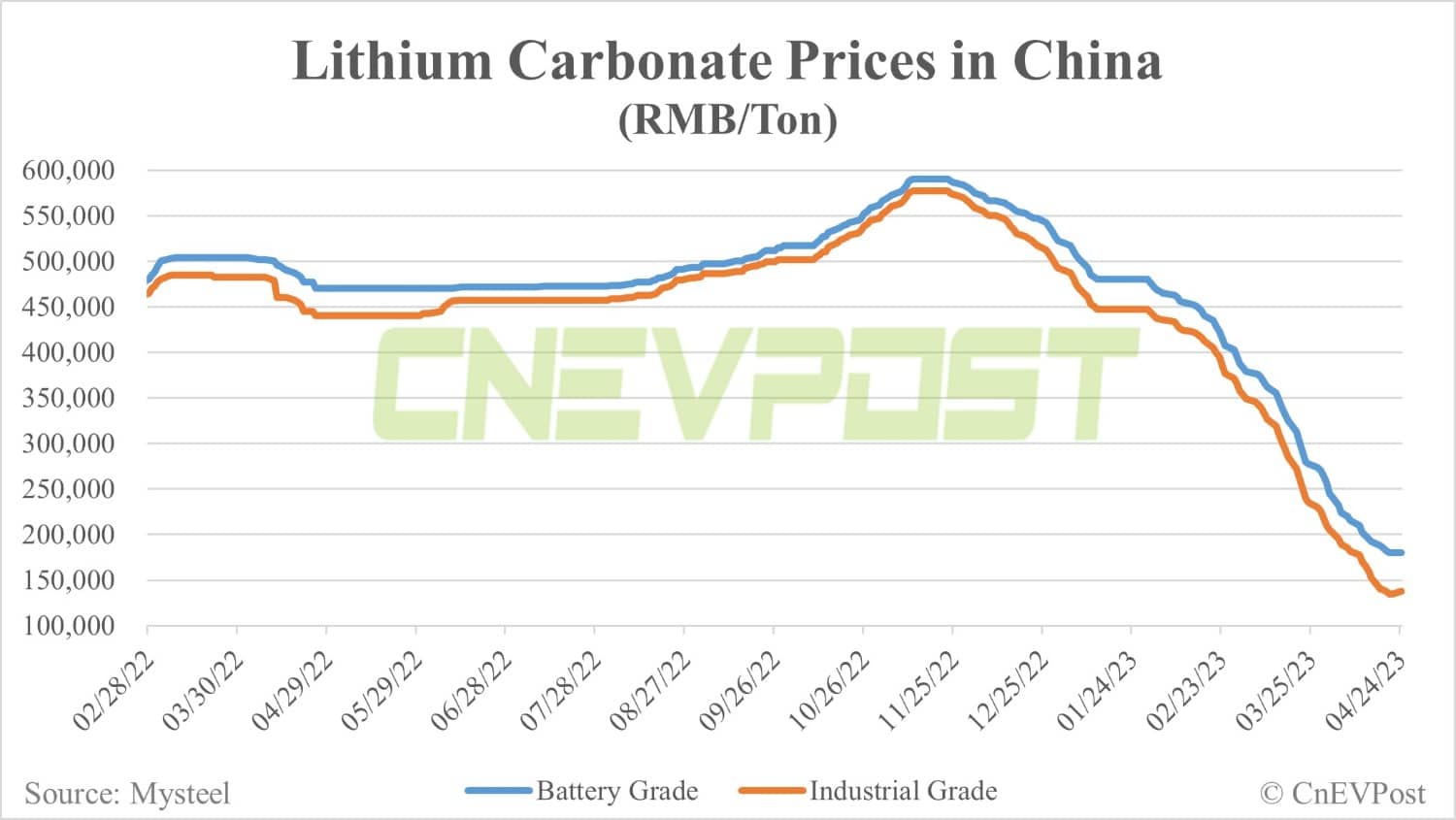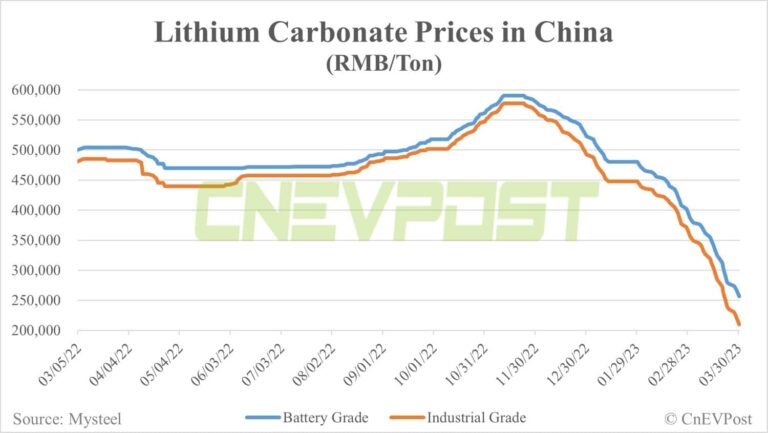Lithium prices are expected to stop falling in the near term, but will continue their downward trend over the next two years, analysts say.
The epic decline in lithium carbonate prices is starting to see signs of stopping.
Industrial-grade lithium carbonate price in China rose RMB 2,500 ($362) per ton today to an average of RMB 137,500 per ton, the first single-day increase this year, according to data from Mysteel.
Battery-grade lithium carbonate, on the other hand, remained at RMB 180,000 per ton for the third consecutive day, according to the data.
With the rapid growth of China's electric vehicle (EV) industry, prices for the key raw material for batteries have risen rapidly in the past two years.
At one point in late November last year, battery-grade lithium carbonate was quoted at RMB 590,000 per ton in China, about 14 times the average price of RMB 41,000 per ton in June 2020.
Since then, lithium carbonate prices have continued their downward spiral, and even a production disruption in Yichun, Jiangxi, nicknamed the "lithium capital of Asia," at the end of February did not stop the downward trend.
Earlier this month, a local media outlet reported that half of Yichun's four major lithium producers had opted to shut down production to stem the downward price trend.
The accelerating downward trend in lithium carbonate prices is unsustainable, with lithium prices expected to gradually stabilize and possibly even rebound in the short term as inventories decrease, said Chinese brokerage CICC analyst Zhang Jiaming's team in an April 20 research note.
Some companies were choosing to cut production due to oversupply, which is a normal phenomenon that would occur during price reductions, the team said.
However, the team believes the downward trend in lithium prices may not end soon, as the global lithium supply is still in surplus.
Market forces will bring a concentration of new capacity coming online and create supply growth that outpaces demand growth, which is the main driver of the easing lithium supply and demand crunch, the team said.
"We expect global lithium resource supply to grow from 760,000 tons to 1,973,000 tons in 2022-2025, with a CAGR of 37 percent," the team wrote.
Separately, CITIC Securities analyst Bai Junfei's team said in an April 17 research note that current lithium prices have fallen near key cost support levels and could stop falling if downstream demand picks up.
Downstream producers have material inventories that are all at extremely low levels, and overseas lithium prices are at a significant premium to Chinese lithium prices, which are also supportive factors, according to the team.
Notably, CITIC Securities shares CICC's view that lithium prices still have room to fall, as the oversupply will continue.
Global new lithium supply will reach 350,000 tons in 2023, and show a trend of quarterly increase, according to CITIC Securities.
In 2023-2025, total global lithium supply will grow to 1.2 million tons, 1.73 million tons and 2.32 million tons, respectively, with year-on-year growth rates of 44 percent, 41 percent and 34 percent, corresponding to a supply surplus of 74,000 tons, 397,000 tons and 438,000 tons, respectively, according to the team.
As the oversupply expands, lithium prices will still have downward pressure in 2024 and 2025, and there is a risk of further price declines after a temporary stop, the team said.
(1 $= RMB 6.9023)

